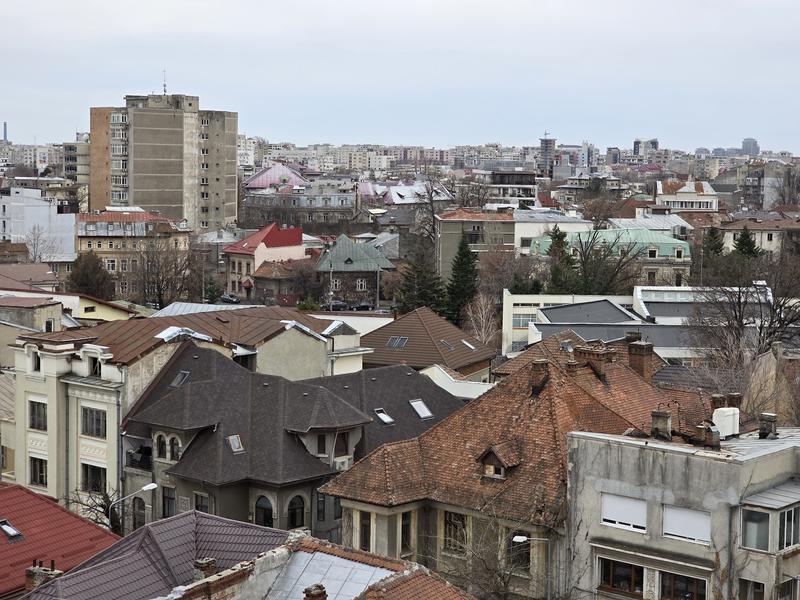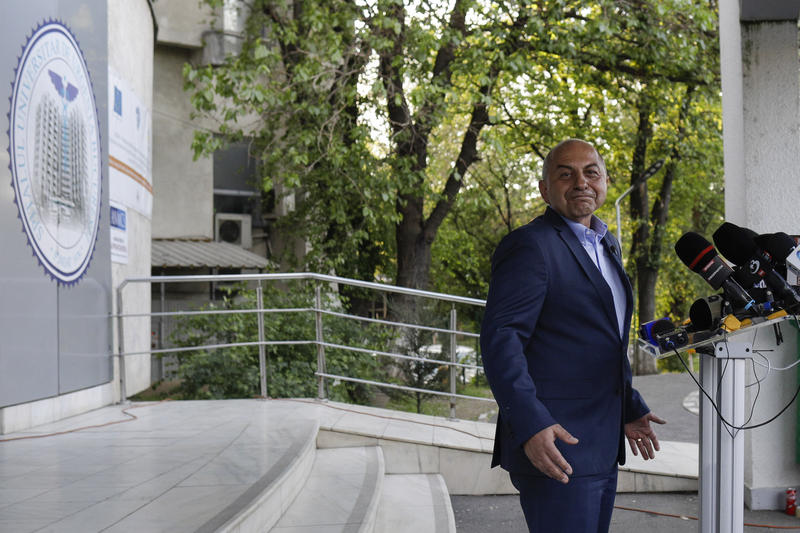The Romanian Government and IMF representatives black-listed the companies which owe money to the state. Elsewhere in the news, Romania will have to pay 31 billion euros worth of public debt over the next five years. Last but not least, children and pregnant women will be vaccinated against swine flu only next year because there hasn't been sufficient time to test the jab.
The Romanian Government and IMF representatives put together a black list of the companies owing the state money and which continue to operate inefficiently despite state subventions, Romania Libera informs. Many of them will be disconnected from the state budget. The tube in Bucharest, transporting around 750,000 daily, might be closed for good. The Railway Companies (CFR) for Passengers and for Infrastructure and the Coal National Company are the only ones to receive further subventions.
The sum for all the companies having to pay the state back amounted to a total of 1.5 billion euros in September. The IMF not only asks for cutting subventions in 2010, but also for reducing staff and for restructuring, so that spendings do not exceed incomes. State secretary in the Economy Ministry Tudor Serban explains that the concept of "subvention" is inexistent in IMF's policy.
The Coal NC will continue to receive state subventions, despite having the biggest debt - 843 million euros and receiving 65 million euros worth of subventions. But the Romanian state will have to give the company 14% less next year and nothing in 2011.
Metrorex union members are surprised of the decision to stop subventions going to the underground, since the tube state company is not even in the Top 10 of the black list. Lacking subventions might force the tube company to increase prices five-folded or shut down. On the other hand, CFR Goods say the company never received subventions and cannot do so because the company is an actor on a competitive market. The manager of CFR Goods claimed the company will restructure, having privatisation in mind. But its restructuring means sacking 6,700 people.
Romania will have to pay 31 billion euros worth of public debt over the next five years, Cotidianul reads. The country contracted loans amounting to almost the value of its entire 2009 GDP this year only - 31.1 billion euros, in comparison with 25.5 billions, the debt at the end of the last year, Finance Ministry data shows. Romania's loan from the IMF, World Bank and the EC equals 20 billion euros, while the Finance Ministry emitted state titles worth of 50 billion lei to cover the state debt from previous years and the budget's current spending.
If Romania wanted to end the short term debt by the end of 2010, the state would have to pay the banks 70% of Romania's 2010 GDP. In 2010, Romania will have to pay 11.62 billion euros to cover part of the public debt. The country might have to borrow money from banks to cover the budget deficit next year. According to the publication, the state needs to borrow another 18.24 billion in 2010.
Gandul reads children and pregnant women will be vaccinated against swine flu only next year because there hasn't been sufficient time to test the jab. According to World Health Organisation standards, they are part of the first group to receive the vaccine, alongside medical staff, police and fire fighters. But in Romania, the "witness group" to test the jab in children is missing. The Romanian Medicine National Agency needs to find and convince 300 parents to allow for their children to be part of the testing.
But even with witness groups incomplete, the tests will be finalised by the end of the present year and the vaccine will be made available in January 2010 or later in the year. The first to get the jab are medical staff and high school students, after the start of the vaccination campaign on November 26, four days later than established in September. Cantacuzino Institute has 1.3 million doses in stock and will produce another 500-600 thousands by the end of this month. But the vaccination schedule has not been yet decided by the authorities and it is not certain that the vaccination implementation is adequate.
Shutting down schools would be a bad idea because the phenomenon could not be monitored anymore. And ordering the vaccine from the international market is not considered efficient either, because this means having to wait for several months. A Romanian Presidential Administration report reads that swine flu management in the country is under control from a medical point of view. According to Romania Libera, while president Traian Basescu was calling for the National State Defence Council, the Health Ministry's infectious disease specialist Adrian Streinu-Cercel resigned "for personal reasons".
Adrian Streinu-Cercel was accused by the authorities in Cotroceni for raising panic among people. Romania's Tamiflu stock is sufficient for only 2% of the country's population. A total of 659 persons have been recorded on the swine flu patients' list since the outbreak of the epidemics. The jab stocks can currently cover only 6.5% of Romania's population.



















